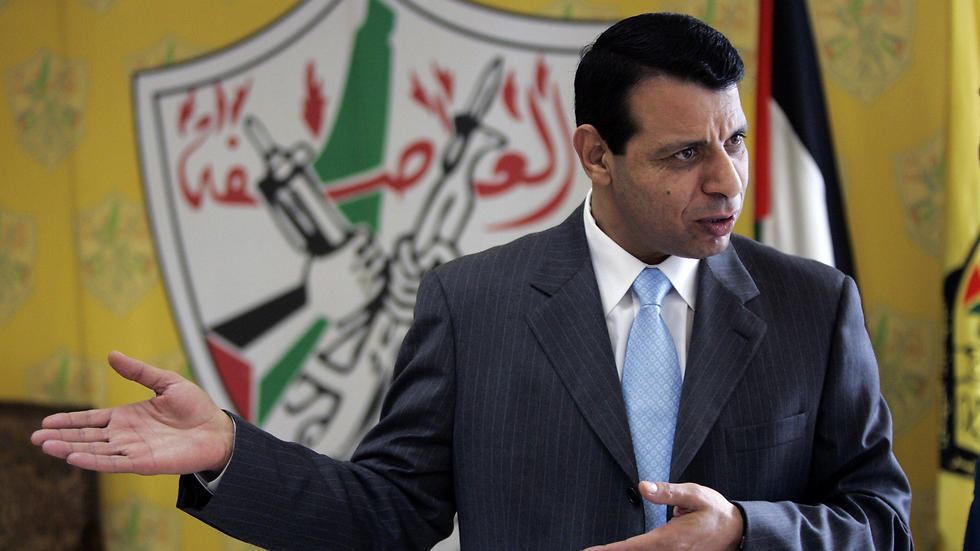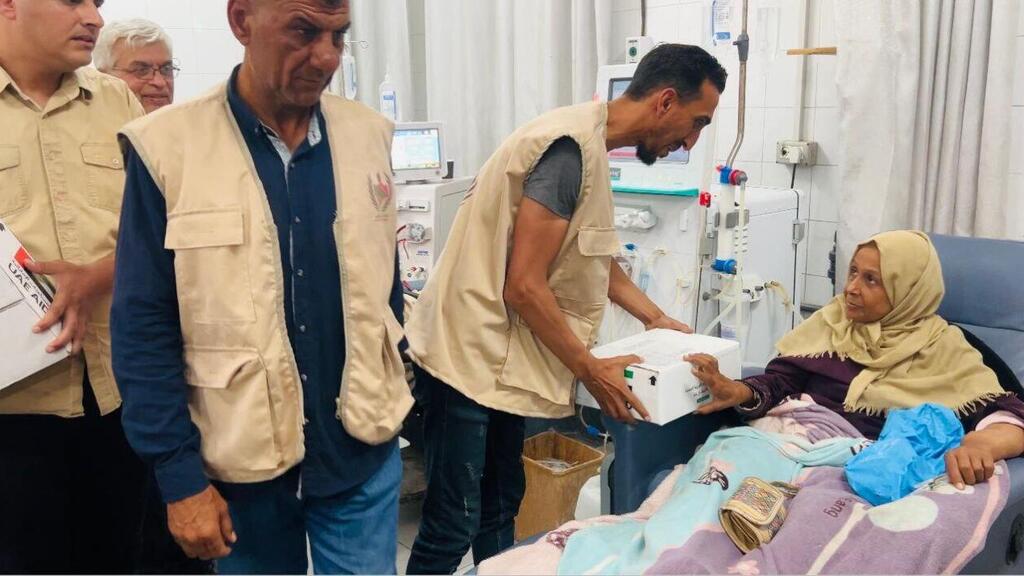Getting your Trinity Audio player ready...
[Cairo] Seizing on Gaza’s worst crisis in years, Egypt is positioning itself as a regional power broker. Leaders in Egypt are using the chaos to reshape governance in the Gaza Strip and reinforce Egyptian influence amid rapidly shifting international dynamics.
Talks in Cairo between rival Palestinian factions Fatah and Hamas have exposed deep complexities in reaching a consensus on Gaza’s future leadership. Parallel discussions explored internal reconciliation within Fatah, including the contentious role of Mohammed Dahlan, the ousted Fatah leader and head of Fatah’s Democratic Reform Faction.
Central to the Cairo negotiations is a proposal for a technocratic civil administration in Gaza under the control of the Palestinian Authority (PA) and without the involvement of Hamas. Hamas leaders Khalil Al-Hayya, Husam Badran and Mousa Abu Marzook have proposed the creation of a “community support committee” to manage crossings, police and security under PA oversight.
Talks between the factions have stalled. Hamas claims it received no substantive response to its proposal. At the same time, Fatah sources say unresolved issues over Hamas-affiliated security forces are a major sticking point.
A Fatah source told the Saudi-owned Al Arabiya news channel that PA President and Fatah Chair Mahmoud Abbas “will reject any deal involving Hamas’ security forces as long as the hostage issue remains unresolved.”
This impasse has delayed any formal agreement, deepening frustration among Gazans and raising questions about the feasibility of reconciliation between the two factions.
Meanwhile, Dahlan has reemerged as a potential figure in Gaza’s reconstruction. Dahlan’s Democratic Reform Faction has distributed humanitarian aid in Gaza, bolstering the UAE-backed leader’s image as a pragmatic figure capable of delivering results where others have faltered.
“Dahlan’s Gulf connections give him access to resources that neither Hamas nor the PA can match,” Mkhaimar Abusada, a political science professor at Gaza’s Al-Azhar University, explained.
Supporters view Dahlan’s UAE ties as an asset allowing him to bypass factional gridlock and focus on aid delivery. Critics, however, argue his aid delivery efforts are a calculated bid to position himself as a leader.
“Dahlan’s influence remains limited, especially in Gaza,” Khaled Okasha, general manager of the Egyptian Center for Strategic Studies, said. “His role depends on whether Egypt, the UAE, and other stakeholders are willing to back him fully.”
The Cairo talks also included discussions on internal reconciliation within Fatah, focusing on the reintegration of members aligned with Dahlan. Key figures such as Hussein al-Sheikh, Samir Masharawi, and Palestinian intelligence chief Majed Faraj participated in these discussions, facilitated by Egyptian intelligence chief Maj. Gen. Hassan Rashad.
While Abbas has reportedly instructed participants to “continue the rapprochement,” he has not decided to reinstate dismissed Fatah members.
Gazans are disillusioned
For Gazans, political deadlock among their leaders exacerbates the daily humanitarian crisis they are facing. Civilians, already struggling with severe food, water and shelter shortages, are desperate for governance that prioritizes their needs.
“Hamas’ tactical victories come at a catastrophic cost for ordinary Gazans,” Waseem Abu Mahadi, a journalist from north Gaza now sheltering in Cairo, explained.
“The people here are desperate for leadership that prioritizes their welfare over political power plays,” Abu Mahadi said. “Instead, they are caught in a cycle of suffering imposed by decisions far from their homes.”
Abu Mahadi noted that while leaders debate governance structures, most regular Gazans are focused on survival. “Reconstruction, electricity and access to clean water are the issues people care about. Instead, they are paying the price for conflicts they didn’t start,” he said.
On Monday, Egypt underscored its role in Gaza’s recovery by hosting a ministerial conference titled “A Year of Humanitarian Catastrophe in Gaza: Urgent Needs and Sustainable Solutions.” The event brought together foreign ministers, United Nations officials, and representatives from international organizations to address Gaza’s dire humanitarian situation.
Dahlan’s challenge is to prove he can rise above factional politics to deliver meaningful change
UN Deputy Secretary-General Amina Mohammed spoke at the conference as a representative of Secretary-General António Guterres. Mohammed called for predictable and sustained aid delivery, urging all parties to adhere to international law.
“Our focus must remain on the Palestinian people and alleviating their suffering,” she said.
Egyptian officials highlighted their efforts to facilitate aid through the Rafah crossing, which has faced tighter Israeli restrictions.
“The international community must act decisively to address this crisis,” said Mahmoud Omar, a senior Egyptian diplomat to Palestine.
Amid these humanitarian efforts, Egypt has proposed establishing an administrative committee to oversee reconstruction and governance in Gaza. This technocratic body would exclude figures from Hamas and the PA to avoid factional struggles for dominance.
“This proposal addresses long-standing grievances about Hamas’ governance while avoiding direct PA involvement, which many in Gaza oppose,” Okasha, the Egyptian Center for Strategic Studies general manager, said.
Hamas, weakened but still influential, has engaged cautiously with the plan. For the group’s battered leadership, accepting a reduced role in governance represents a bitter compromise, but one necessary for ensuring stability and aid delivery.
Meanwhile, Dahlan’s challenge is to prove he can rise above factional politics to deliver meaningful change.
“Dahlan’s ability to channel aid and build alliances is significant,” Abusada, the political scientist, said. “But his reliance on external actors like the UAE could undermine his credibility among Palestinians.”
Get the Ynetnews app on your smartphone: Google Play: https://bit.ly/4eJ37pE | Apple App Store: https://bit.ly/3ZL7iNv
Abu Mahadi cautioned that current talks offer hope but fail to address the root causes of Gaza’s suffering. “Without real political change and genuine leadership, Gaza will remain stuck in a cycle of destruction and reconstruction,” the journalist said.
Gaza’s future will ultimately depend on balancing local support, regional cooperation, international engagement, and Israeli intentions. “The people deserve leadership that prioritizes peace, development, and stability – values that have been missing for far too long,” Abu Mahadi said.
This article is written by Mina Nader and Jacob Wirtschafter and reprinted with permission from The Media Line



